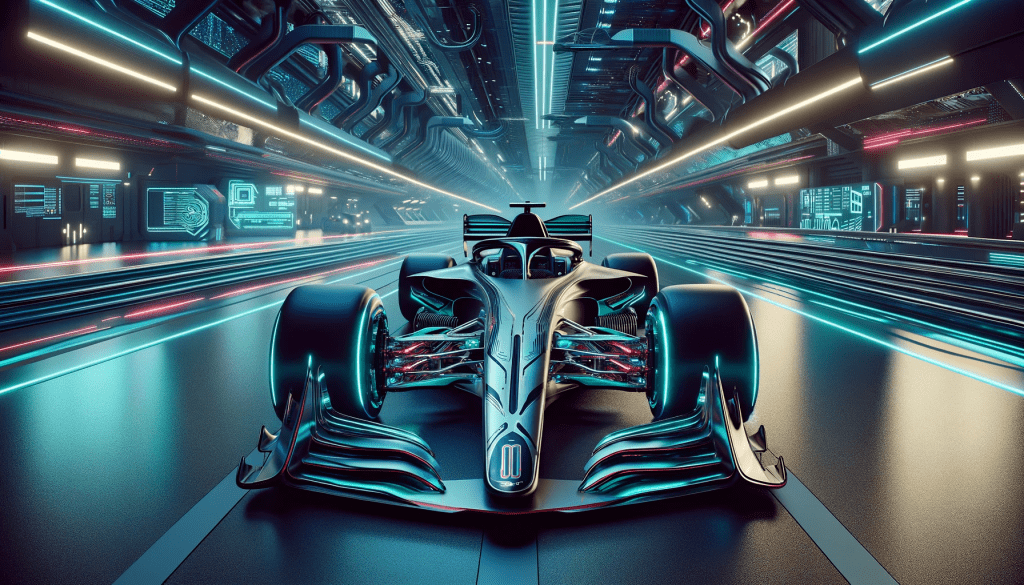How Virtual Racing Is Shaping the Future of Motorsports
In recent years, virtual racing and esports have shifted from the sidelines to become pivotal players in the motorsport arena. This evolution has not only expanded the definition of racing but also opened up unprecedented opportunities for engagement, accessibility, and innovation within the field. This article explores how virtual racing and esports are integrating into the motorsport landscape, transforming it from the ground up.

The Rise of Virtual Racing
Virtual racing, once a niche hobby for gaming enthusiasts, has burgeoned into a significant facet of the motorsport world, thanks to advancements in technology and shifting cultural perceptions.
A New Realm of Competition
Esports racing offers a platform where the thrill of motorsports transcends physical boundaries, allowing for a new genre of competition that is both accessible and inclusive.
Technology Driving Realism
Cutting-edge simulators and gaming technology have bridged the gap between virtual and real-world racing, delivering hyper-realistic experiences that mimic the nuances of actual driving.
Esports: The New Motorsport Arena
Esports have carved out a significant niche within the motorsport ecosystem, with professional leagues and tournaments now standing shoulder to shoulder with traditional races.
Professional Leagues and Sponsorships
The establishment of professional esports racing leagues, complete with team sponsorships and televised events, underscores the growing legitimacy and commercial appeal of virtual racing.
From Gamers to Racers
Notably, virtual racing has become a proving ground for new talent, with some gamers making the leap to real-world racing circuits, blurring the lines between virtual and traditional motorsport paths.
Bridging the Gap
The integration of virtual racing into the motorsport landscape has facilitated unprecedented levels of interaction and engagement between fans, drivers, and teams.
Fan Engagement and Accessibility
Virtual racing breaks down geographical and financial barriers, allowing fans from all over the world to engage with motorsports in ways that were previously unimaginable.
Training and Development
Professional drivers increasingly turn to simulators for training, strategy development, and familiarizing themselves with circuits, highlighting the practical benefits of virtual racing.
The Impact of COVID-19
The global pandemic accelerated the adoption of virtual racing, with the motorsport community turning to esports as a viable alternative during lockdowns and event cancellations.
Virtual Grand Prix Series
Major motorsport organizations, including Formula 1, launched virtual races featuring professional drivers and celebrities, maintaining fan engagement and competitive spirit during challenging times.
A Lifeline for Teams and Sponsors
Esports provided a critical platform for teams and sponsors to maintain visibility and engagement, proving the resilience and adaptability of the motorsport industry.
Technological Innovations
The symbiotic relationship between virtual racing and technological advancements continues to push the boundaries of what’s possible, both online and on the track.
Advanced Simulators
The development of advanced simulators, with precise feedback mechanisms and immersive environments, enhances the training of drivers and the entertainment value for fans.
Data Analytics and Strategy
The use of data analytics in virtual racing mirrors real-world practices, offering insights into performance, strategy, and vehicle dynamics, further aligning the virtual and physical realms of motorsport.
The Cultural Shift
As virtual racing gains prominence, it’s also influencing the cultural fabric of motorsport, changing perceptions, and democratizing access to what was once an elite sport.
Redefining Motorsport Identity
The rise of esports challenges traditional notions of motorsport, embracing a more inclusive and diverse community of racing enthusiasts.
The Next Generation of Fans and Drivers
Virtual racing is engaging a younger demographic, shaping the future fan base and driver pool with a digital-first mindset.
Ethical and Regulatory Considerations
With the growth of virtual racing, ethical and regulatory frameworks are evolving to address issues such as fair play, sportsmanship, and the use of proprietary data and software.
Establishing Governance Structures
The establishment of governing bodies and regulations for esports racing ensures integrity and fairness, mirroring the regulatory environment of traditional motorsports.
Intellectual Property and Licensing
Collaborations between game developers, car manufacturers, and racing leagues are crucial in navigating the complex landscape of intellectual property rights and licensing agreements.
Looking Ahead: The Future of Virtual Racing
The trajectory of virtual racing and esports suggests a future where the lines between virtual and real-world racing continue to blur, offering exciting possibilities for innovation, engagement, and expansion.
Technological Convergence
Emerging technologies such as VR, AR, and AI promise to further enhance the realism and interactivity of virtual racing, potentially revolutionizing driver training and fan experiences.
The Role of Sustainability
Virtual racing presents an environmentally friendly alternative to traditional motorsports, aligning with broader societal shifts towards sustainability and reduced carbon footprints.
In conclusion, virtual racing and esports have become integral components of the motorsport landscape, driving innovation, expanding access, and reshaping the cultural and commercial dynamics of the sport. As technology advances and societal attitudes evolve, the potential for virtual racing to influence and enrich the world of motorsports is boundless, heralding a new era where the excitement and passion of racing are accessible to all, regardless of location or background.